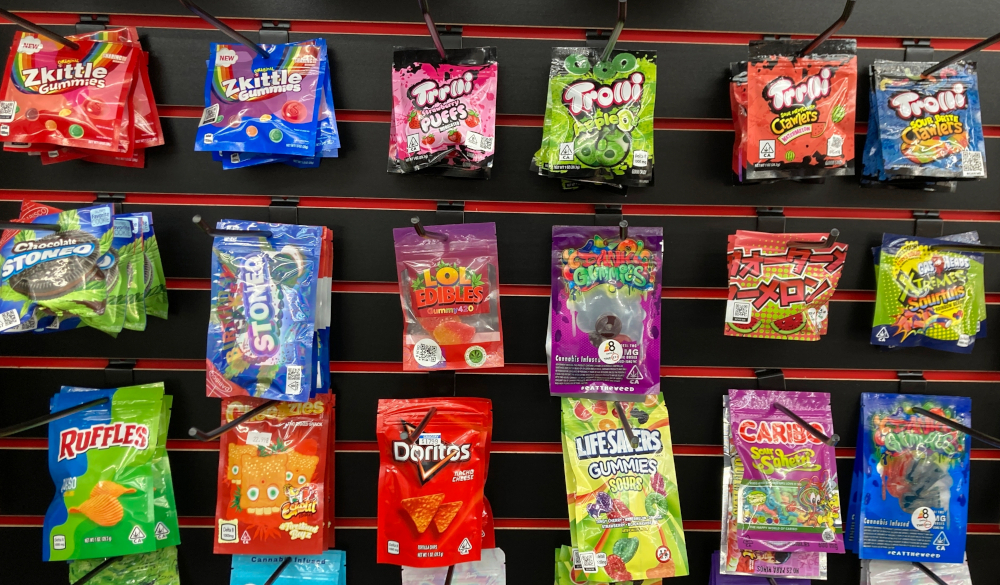The State of Virginia stands to collect nearly $11 million in fines from more than 300 businesses that violated rules meant to crack down on intoxicating hemp products.
The Virginia Department of Agriculture and Consumer Services (VDACS) reported that 346 of 424 businesses – 82% – inspected over the past year were found to be in violation of state law since strict rules regarding hemp food products went into effect in July 2023.
Amendments made last year to Virginia’s food and drink and industrial hemp laws closed a loophole in state regulations that had allowed products containing the synthetically produced psychoactive compounds, which are made from hemp-derived CBD, to flourish.
Under the amendments, edible hemp products are limited to a maximum 0.3% total of all forms of THC, and individual products are capped at 2 milligrams. Businesses that sell hemp products are required to register with the state, and hemp products intended for internal consumption must be lab tested. Additional requirements include child-resistant packaging and restrictions on labeling.
Violations continue
FDACS inspections uncovered a total of 17,715 violations among the 346 business that were assessed fines for civil violations totaling $10,772,250. Roughly half that amount has been collected, according to the farming agency.
FDACS said it has recorded violations in 43 of 66 businesses inspected so far in the second year of enforcement that started July 1, 2024.
The intoxicating hemp substances, which are made by putting hemp-derived CBD through a synthetic process, are variously referred to as “gas station pot,” “diet weed,” “marijuana light” or other slang labels. The products containing them are marketed as an alternative to marijuana, which contains the psychoactive compound delta-9 THC. In addition to delta-8 THC – the most popular of the “high”-producing hemp compounds – the substances include delta-10 THC, THC-O-acetate, HHC, THCP and others.
Made in the lab
The synthetic compounds emerged in the wake of the CBD boom and bust that followed passage of the 2018 Farm Bill, which failed to account for the possibility of the lab-produced psychoactive substances made from industrial hemp. The downturn left CBD producers looking for an outlet for their pent-up supplies. They found that outlet among producers working in a semi-gray market based on the loophole in the Farm Bill, which legalized industrial hemp across the nation, and in state laws set down in the wake of the federal legislation.
States across the USA are working to reign in products containing the intoxicating hemp substances, with some banning them altogether and others imposing strict rules. Many producers and sellers have been warned by the U.S. Food & Drug Administration (FDA) regarding the safety of the products after the agency received reports of serious adverse events from consumers.
One child’s death
The law in Virginia was, in part, a response to an increase in the numbers of children ending up in Virginia emergency rooms due to exposure to the substances – often packaged in motifs that mimic well-known brands of snacks that appeal to youth. At least one child’s death in Virginia in 2022 was attributed to the consumption of delta-8 THC.
A federal judge last October left the Virginia rules in place after a stakeholder group had challenged them in court. The court ruled that the state had not overstepped its authority to regulate hemp in a way that conflicted with federal law nor interfered with interstate commerce, and had demonstrated that delta-8 THC is a credible threat to public health.

